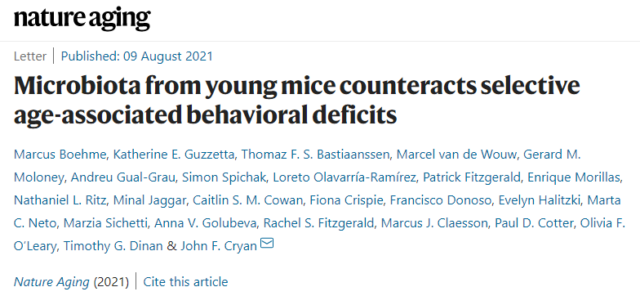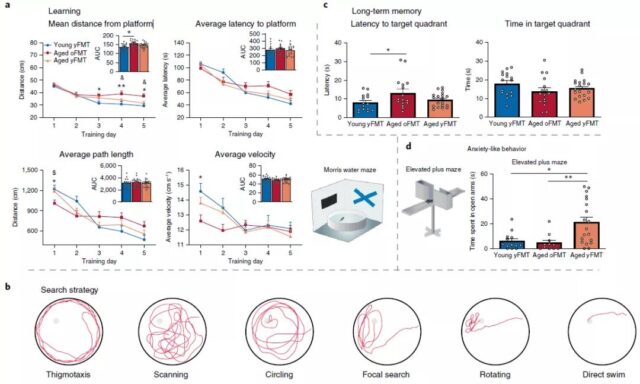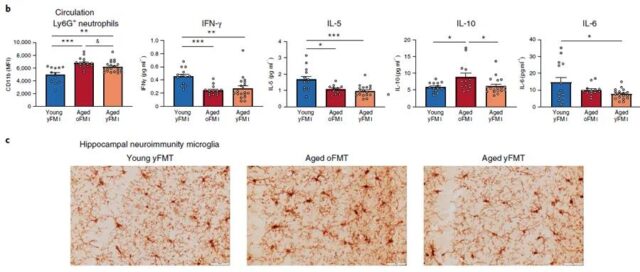Nature: Reverse aging! Fecal transplant can reverse brain aging
- Normal Liver Cells Found to Promote Cancer Metastasis to the Liver
- Nearly 80% Complete Remission: Breakthrough in ADC Anti-Tumor Treatment
- Vaccination Against Common Diseases May Prevent Dementia!
- New Alzheimer’s Disease (AD) Diagnosis and Staging Criteria
- Breakthrough in Alzheimer’s Disease: New Nasal Spray Halts Cognitive Decline by Targeting Toxic Protein
- Can the Tap Water at the Paris Olympics be Drunk Directly?
Nature: Reverse aging! Fecal transplant can reverse brain aging
Nature: Reverse aging! Fecal transplant can reverse brain aging. The intestine is the human body’s largest immune organ. There are about 40 trillion bacteria in the human intestine, which play an important role in health. They affect people’s weight, digestion, resistance to infection and autoimmune disease risk, and even It can control the body’s response to cancer treatment drugs.
In recent years, a large number of intestinal microbial studies have shown that intestinal microbes can affect our health, physique, personality and even lifespan to a certain extent!
On August 9, 2021, researchers from the University of Cork in Ireland published a research paper titled “” in the journal “”, a sub-Journal of Nature.
The study shows that by extracting the gut microbiome from young mice and transplanting them into old mice, the brain aging of aging mice can be reversed, including many effects of aging on learning, memory and immune disorders.
This groundbreaking research opens up a potential new therapeutic approach in the form of microbial intervention to slow down brain aging and related cognitive problems.

In this study, the researchers transplanted fecal microbes from the intestines of young (3-4 months) or old (19-20 months) donor mice into elderly recipient mice (19-20 months) middle.
The study found that the transplantation of the gut microbiota in young mice reversed the changes related to aging in the immune system of old mice. The brains of elderly mice that received fecal transplants from young donors also regained their vitality and contained metabolites and gene regulation patterns similar to those of young mice.

The influence of stool transplantation on learning, memory and behavior
In addition, fecal transplantation of young mice improved the behavior of older mice on multiple cognitive tests of learning, memory, and anxiety.
Using a maze test on mice, it was found that the transplantation of the fecal microbiota from young mice to old mice caused the old mice to find their targets faster.
Specifically, the researchers found that the chemicals in the brain’s areas related to learning and memory (the hippocampus) are more like the chemicals in young mice after microbiota transplantation.

Fecal transplantation regulates peripheral immunity and hippocampal neuroimmunity
In short, by extracting the microbiome from young mice and transplanting them into old mice, many effects of aging on learning, memory and immune disorders can be reversed.
The researchers emphasized that mice are different from humans because they are handled under controlled conditions and they have a very clear genetics, diet, and microbiome. The living environment of humans is very different from that of mice.
The researchers said that these findings reveal the potential of the gut microbiome as a therapeutic target to promote healthy aging. Future research needs to explore how specific bacteria in the microbiome or their metabolites can cause these effects.
(source:internet, reference only)
Disclaimer of medicaltrend.org
Important Note: The information provided is for informational purposes only and should not be considered as medical advice.



